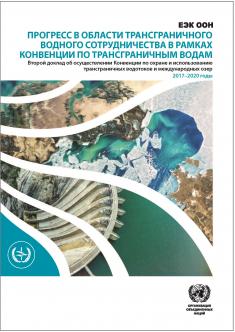The Convention on the Protection and Use of Transboundary Watercourses and International Lakes (Water Convention), hosted by the United Nations Economic Commission for Europe (ECE), requires Parties to prevent, control and reduce transboundary impact, use transboundary waters in a reasonable and equitable way and cooperate to ensure their sustainable management. Parties bordering the same transboundary waters have to cooperate by entering into specific agreements and establishing joint bodies. As a framework agreement, the Convention does not replace bilateral and multilateral agreements for specific basins or aquifers; instead, it fosters their establishment and implementation, as well as their further development.
In 2003, the Water Convention was amended to allow accession by countries outside the UNECE region. As of 2016, all United Nations Member States can accede to the Convention. Today, the membership of the Water Convention is steadily growing, reconfirming its role as a legal framework for transboundary water cooperation worldwide and transforming its intergovernmental platform into a major forum for international debate on transboundary cooperation, peace and sustainable development.
Another important step in the evolution of the Water Convention was the decision taken by the Parties in 2015 to introduce a reporting mechanism in order to monitor and assess progress in the implementation of the Convention. The outcomes of the second reporting exercise, which took place in 2020–2021, are presented in this synthesis report. The report details the significant results achieved by the Parties to the Convention in implementing transboundary water cooperation but also identifies gaps and problematic areas in implementation and provides recommendations to Parties and international partners on possible actions to improve integrated water resources management and transboundary cooperation. The report aims to strengthen the understanding of the requirements of the Convention and to contribute to its effective implementation and to improved transboundary water cooperation worldwide.
More information on the work on Reporting under the Water Convention can be found here: https://unece.org/environmental-policy/water/transboundary_water_cooperation_reporting
ECE/MP.WAT/67


